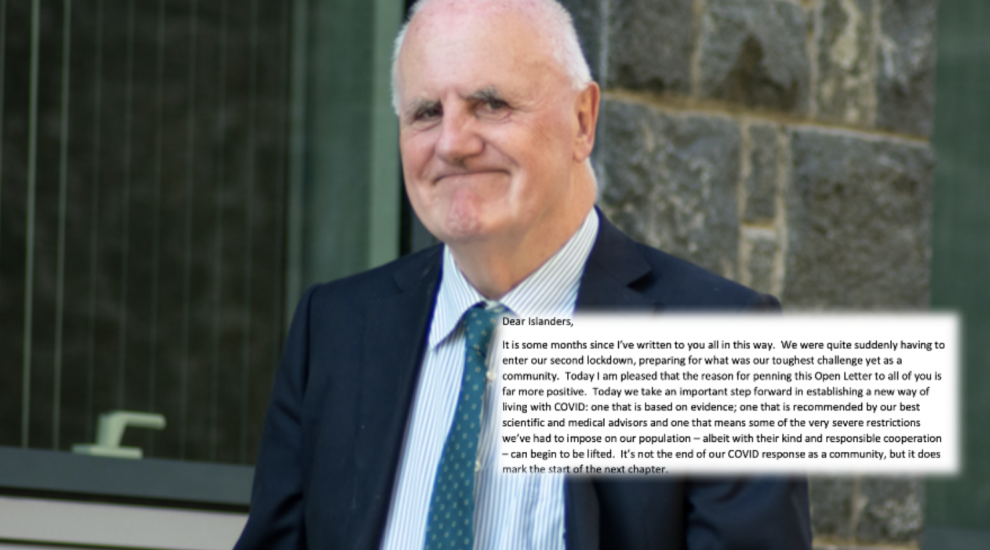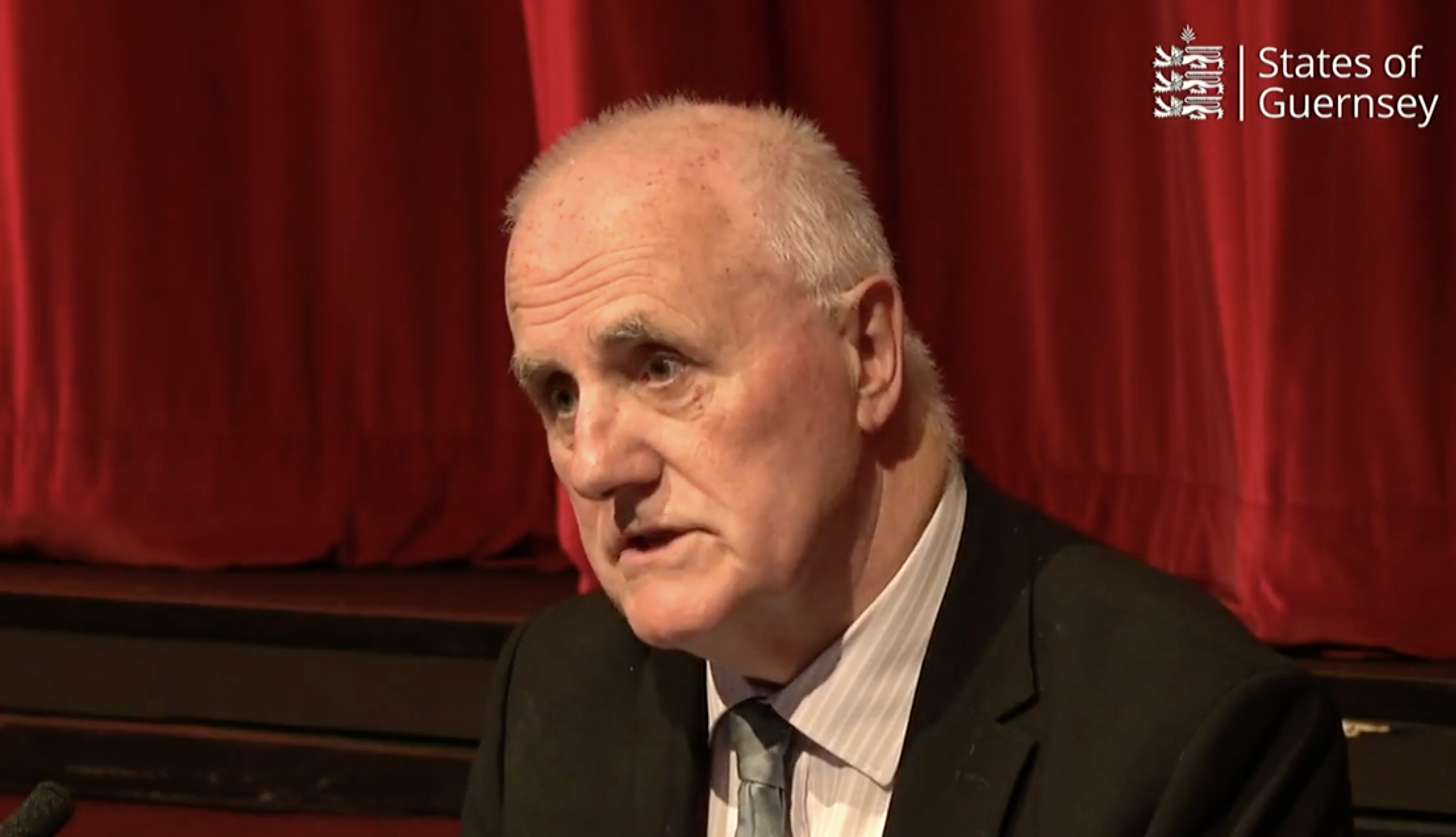


The Chair of the Civil Contingencies Authority has sought to reassure the public about the relaxation of our borders.
Deputy Peter Ferbrache has penned an open letter to the community, in which he writes about the “positive step” we’ve taken and to ask us to change our thinking when it comes to covid.
It was made clear during the last briefing that the Bailiwick should expect cases to rise as people start to travel freely within the Common Travel Area. Deputy Ferbrache said to expect outbreaks, as we begin to “live with covid.”

Pictured: “Full vaccination affords 95% protection against needing hospital care,” said Deputy Ferbrache.
However, in the letter – which can be read in full below – Deputy Ferbrache urges us to trust the CCA, and celebrate our renewed freedoms.
Dear Islanders,
It is some months since I’ve written to you all in this way. We were quite suddenly having to enter our second lockdown, preparing for what was our toughest challenge yet as a community. Today I am pleased that the reason for penning this Open Letter to all of you is far more positive. Today we take an important step forward in establishing a new way of living with COVID: one that is based on evidence; one that is recommended by our best scientific and medical advisors and one that means some of the very severe restrictions we’ve had to impose on our population – albeit with their kind and responsible cooperation – can begin to be lifted. It’s not the end of our COVID response as a community, but it does mark the start of the next chapter.
Why is it not the end? Because there are many things we must and will continue to do. We must keep observing a lot of the good practice we picked up during the pandemic: We must stay at home if we feel unwell and get tested if we have even mild symptoms. We must wash our hands. We must ‘catch it, bin it, kill it’. Businesses should all provide hand sanitiser and ask customers and staff to use it. As a government, most importantly, we must continue with our testing and vaccination programmes. We have fully vaccinated nearly all over-50s and those most at-risk who have chosen to be vaccinated. But we must keep the roll-out going and we remain confident that by mid-August, everyone 18 and older will have had the opportunity to be fully vaccinated.
Our testing programme will also continue to be crucial and we will be using it in a smarter way than ever before. For those who’ve interpreted our July 1st travel rules as an ‘end to testing at the borders’, that is not at all what today means. Testing for all travellers, from all destinations continues just as it did yesterday with the exception only of fully vaccinated arrivals coming from the Common Travel Area (the UK, Ireland, Jersey and the Isle of Man). For our public health experts, these fully vaccinated arrivals are the least concerning as not only are they less likely to be a positive case but even if they are, they are less likely to transmit it. The focus for border testing must and will remain those unvaccinated travellers who will be tested depending on the prevalence of where they came from. But where we are being smarter and using more of our testing capacity (including both PCR and lateral flow tests) is our testing in the community. That is a broad mix of situations where we test, from children returning to schools or clubs after their holidays, to surveillance testing of specific workforces and of course, testing anyone who displays any symptoms. We know from our second wave and second lockdown that border testing is a good tool, but an imperfect one. We need to use our tests where they’re really going to be effective so that they genuinely help us to keep COVID under control rather than just serve to give us a false sense of security. We are also ready to refocus our testing on any area where it may be needed going forward and this could include any UK region where we have specific concerns and determine that we need to apply what we’ve called a ‘public health override’, and we are keeping that under constant review from day one.
From today there are also things we need to do very differently. And one of the most important is to change our thinking around what cases in the Bailiwick means. We’ve associated it with hospitalisation, with deaths, with the potential for health services to be overwhelmed. We’ve justified what are really very strict and quite extreme travel restrictions because of those risks. But the risk profile has changed with more than 70% of entire population having had at least one dose. The data shows a full vaccination affords 95% protection against needing hospital care. Younger age-groups are significantly less vulnerable and already far less likely to become very ill and need hospital care. No, it’s not completely risk-free, it never will be no matter what we do. But it is a big change compared to the risk we faced before the vaccine. And as we no longer face the same levels of risk, we can no longer justify the same levels of restrictions. It’s simply not proportionate and not necessary. But in removing the restrictions that we can no longer justify, we must also ask our community not to be complacent. It’s time to start learning to live with COVID, and if we do so responsibly, we can finally begin to regain some of the lost freedoms that COVID has cost us. And that should be cause for celebration.
Deputy Peter Ferbrache
Chair of the Civil Contingencies Authority
Comments
Comments on this story express the views of the commentator only, not Bailiwick Publishing. We are unable to guarantee the accuracy of any of those comments.